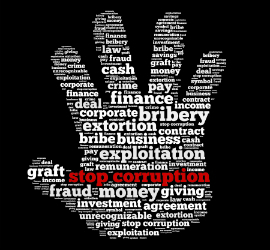On the occasion of International Anti-Corruption Day, the Economic Crime and Cooperation Division of the Council of Europe held an online forum “Controlling Corruption Risks in Crises Settings”.
The event brought together high-level officials, anti-corruption experts and representatives of national anti-corruption agencies who had the opportunity to share their perspectives on some of the lessons learned during the COVID-19 pandemic and other emergencies. The participants further discussed a range of measures which would be needed to further curb corruption risks in similar situations.
The forum’s keynote speakers included Mr Ljupco Nikolovski, Deputy Prime Minister of North Macedonia, Ms Etilda Gjonaj, Minister of Justice of Albania, and Mr Alfredo Durante Mangoni, Chair, G20 Anti-Corruption Working Group.
Following the keynote addresses, the forum was divided into two panel discussions.
The first panel focused on participants’ observations on measuring corruption risks, corruption assessments and indexes. The speakers particularly noted that more complex approaches based on scientific and quantitative methods, rather than perception-based approaches, needed to be developed and implemented. Furthermore, speakers emphasised that focus should be firmly placed on outcomes rather than efforts when assessing the effectiveness of anti-corruption actions and measures.
The second panel explored lessons learned from the COVID-19 pandemic in terms of anti-corruption measures and the broader issues relating to preventing corruption during emergencies. The speakers touched upon the challenges faced by anti-corruption institutions to perform oversight functions in times of crisis, particularly in areas such as analysing and verifying asset declarations, monitoring election campaign financing, public procurement, and lobbying. Speakers also noted the importance of ensuring transparency of legislative process in response to rapidly changing circumstances. To conclude, several speakers presented their views on the adequacy of current anti-corruption tools to counter these challenges in the context of emergencies.
The Economic Crime and Cooperation Division would like to thank all the speakers and participants for their valuable input. The Division provides technical assistance to many countries and jurisdictions to support their efforts to prevent and fight corruption effectively and will continue its work to make sure that anti-corruption and anti-money laundering standards are observed even in emergency situations.




